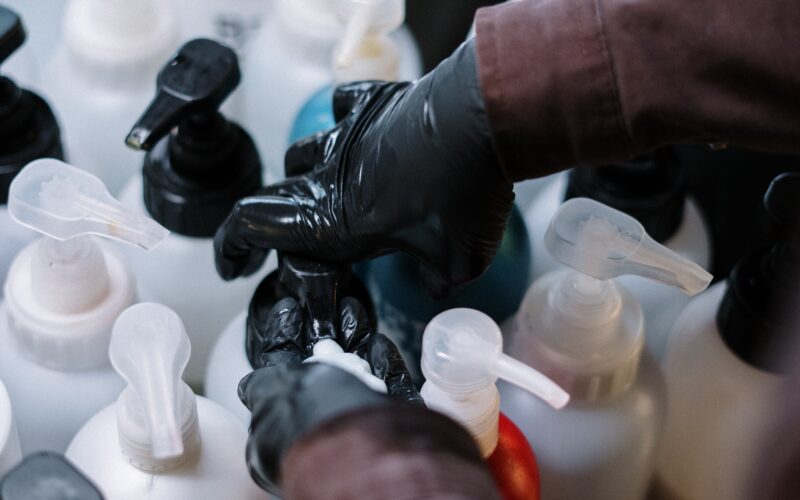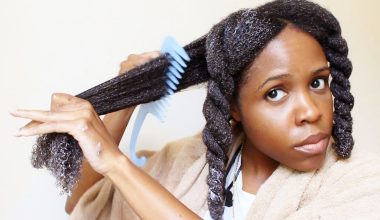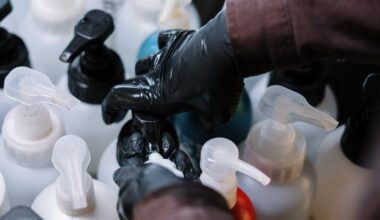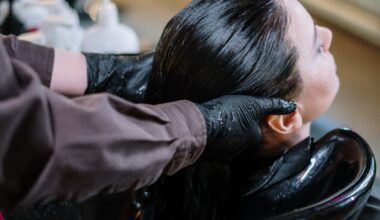Introduction:
Back in the early 2000s, Sarah, a vibrant hair enthusiast, stumbled upon an old bottle of conditioner tucked away in the back corner of her bathroom cabinet. A wave of nostalgia hit as she remembered purchasing it during a vacation. But the critical question arose: Is it still good to use? Like Sarah, many of us have faced this dilemma. With so many hair products in our repertoire, it’s easy to lose track. But understanding when to hold on and when to let go of that bottle is essential not just for the sake of our hair’s health but its beauty too.
The Science Behind Hair Conditioner’s Shelf Life
Conditioners play a pivotal role in our hair care routine. They’re designed to coat the hair shaft, providing hydration, reducing friction, and preventing breakage. But what happens as they age?
- How conditioners work:
- At a microscopic level, our hair has cuticles that, when damaged or raised due to various factors like heat or chemicals, can make hair look frizzy and feel rough. Hair conditioners come to the rescue by smoothing these cuticles down, providing a protective layer, thus giving hair its softness and shine back.
- Ingredients that might degrade over time:
- Silicones and Oils: Over time, these can separate from the rest of the product, making the conditioner less effective.
- Preservatives: Essential for preventing bacteria and mold growth. But their effectiveness reduces over time, which can lead to product contamination.
- Fragrances and Essential Oils: Can evaporate or change, leading to a different smell or even an off-putting odor.
Understanding these changes can not only help us identify an old product but also ensure that our hair gets the best care.
Recognizing a Gone-Bad Hair Conditioner
Just as milk sours or fruits rot, hair conditioners too show signs of expiration. While it might not be as evident, there are tell-tale indicators to watch out for.
- Changes in consistency, smell, and color:
- A fresh bottle of conditioner has a smooth, creamy texture. Over time, if it becomes too thick, lumpy, or even too watery, it’s a sign that the product has degraded.
- A shift in the fragrance can also be a red flag. If your hair conditioner starts to give off a rancid or unusual odor, it’s best to discard it.
- While slight changes in color can be due to exposure to light or air, a significant color shift, especially into unusual shades, suggests the product has gone bad.
- Separation of ingredients or growth inside the bottle:
- Over time, the ingredients in a conditioner can separate, leading to a layered appearance, with oils floating on top. While minor separation can be due to temperature fluctuations and can be fixed with a good shake, consistent separation indicates expiration.
- Any signs of mold, fungus, or unusual particles floating should be an immediate reason to throw the product away. These growths are not just harmful to the hair but can lead to scalp infections too.
Remember, while using an expired conditioner might not always have immediate visible effects, it might not be providing the benefits your hair needs. And in some cases, it could do more harm than good.
Natural vs Commercial Conditioners: Lifespan Differences
There’s been a significant shift towards natural hair care in recent decades. While the absence of chemicals in natural products is celebrated, it also has implications for the product’s lifespan.
- Preservatives in commercial conditioners:
- Most commercial conditioners contain preservatives to prolong shelf life and prevent microbial growth. Common preservatives like parabens, although controversial for other reasons, are effective in ensuring your conditioner remains good for longer.
- On average, a commercial conditioner can last between 12 to 24 months, but always refer to the expiry date mentioned on the product.
- The shorter life of organic and natural conditioners:
- Natural or organic conditioners often avoid synthetic preservatives. While beneficial for those seeking a chemical-free routine, this means these products can expire faster. Often, the lifespan can be as short as 6 to 9 months.
- Essential oils, commonly used in natural products, can vary in their preservation qualities. Some, like rosemary or tea tree oil, offer mild preservation properties, while others might not.
- It’s crucial to store natural hair conditioners in cool, dark places and use them up quicker than their commercial counterparts.
One isn’t necessarily better than the other; it’s all about preference. However, understanding the lifespan differences can ensure you’re getting the most out of whichever product you choose.
Storing Your Hair Conditioner the Right Way
Ensuring the longevity and potency of your conditioner isn’t just about purchasing the right product—it’s also about how you store it.
- Ideal storage conditions:
- Temperature: Extreme temperatures, be it hot or cold, can affect your hair conditioner’s consistency, scent, and efficacy. Store your conditioner in a cool, dry place away from direct sunlight.
- Moisture: Bathrooms, while the most common storage spot, can be humid. Excess moisture can promote the growth of mold and bacteria in products. If possible, keep your conditioner in a cabinet or drawer to limit exposure.
- Factors that can reduce its lifespan:
- Heat: Storing your conditioner near a window or in a place that gets direct sunlight can degrade its ingredients faster.
- Light: Certain ingredients, especially in natural conditioners, can be photosensitive, meaning they break down in sunlight. This can reduce the product’s overall lifespan.
- Air: Every time you open your conditioner bottle, air gets in. This can introduce contaminants and expedite the expiration process. Using pumps or squeeze bottles, which limit air exposure, can help in prolonging the conditioner’s life.
In essence, a little attention to where and how you store your conditioner can go a long way in ensuring it remains effective and beneficial for your hair.
Conclusion: Maximizing the Benefits of Your Hair Conditioner
Gone are the days when hair conditioner was just an afterthought in our hair care routine. In the bustling, dynamic world of today, where our hair is exposed to myriad external factors like pollution, heat, and chemicals, conditioners are nothing short of a hair savior. From locking in moisture to preventing frizz, they are our hair’s best allies.
However, just like every other product, conditioners have a shelf life. Whether it’s the slight change in texture, an off-putting odor, or a change in color, it’s crucial to be vigilant. Our hair deserves the best, and using an expired product might deprive it of the nourishment it needs.
Remember Sarah from the introduction? She chose to let go of that old conditioner bottle, and instead, she invested in a new one, ensuring her hair got the best care. Be like Sarah. Ensure you’re not just using a conditioner, but using one that’s in its prime.
Whether you opt for a commercial conditioner packed with preservatives or a natural one infused with the goodness of nature, understanding its lifespan is paramount. Store it right, use it within its optimal period, and let your hair reap the benefits.
Key Takeaways:
- Understand Your Conditioner: Know the science behind it and how various ingredients might degrade over time.
- Stay Alert: Watch out for signs of expiration like change in consistency, smell, or appearance.
- Choose Wisely: Recognize the lifespan differences between natural and commercial conditioners.
- Store Smartly: Ensure your conditioner is kept in optimal conditions to prolong its shelf life.
- Prioritize Your Hair’s Health: Always prioritize your hair’s wellbeing over the desire to finish up an old product.




